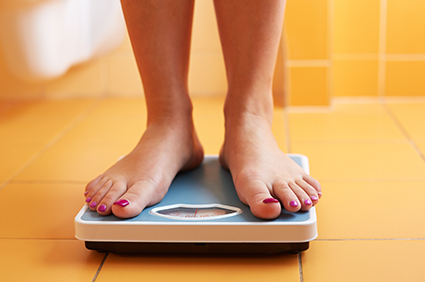Introduction
When it comes to starting a family, understanding how weight affects the chances of getting pregnant is crucial. Whether you’re trying to conceive naturally or with the help of medical interventions, maintaining a healthy weight can significantly influence your fertility. Let’s explore the intricate relationship between weight and the chances of getting pregnant, and what steps you can take to optimize your reproductive health.
Relationship Between Excessive Weight and Infertility
Excessive weight can negatively impact fertility in several ways. Studies by Zheng et al have shown that obesity is associated with hormonal imbalances, irregular menstrual cycles, and ovulation disorders, all of which reduce the chances of getting pregnant. Women with a body mass index (BMI) over 30 often experience difficulties in conceiving due to these disruptions in their reproductive system. Furthermore, obesity can lead to conditions like polycystic ovary syndrome (PCOS), which further complicates fertility
Causes of Excessive Weight
Understanding the causes of excessive weight is essential to comprehend how weight affects the chances of getting pregnant. Several factors contribute to weight gain, including poor diet, lack of physical activity, genetic predisposition, and underlying medical conditions such as hypothyroidism and insulin resistance.
Poor Diet
A poor diet is one of the leading causes of excessive weight gain and significantly affects the chances of getting pregnant. Diets high in calories, saturated fats, sugars, and processed foods contribute to weight gain by providing excess energy that the body stores as fat. Consuming large portions, frequent snacking on unhealthy foods, and drinking sugary beverages can all lead to an increase in body weight. Additionally, diets lacking in essential nutrients such as fiber, vitamins, and minerals can disrupt metabolism and hormonal balance, further complicating fertility.
Lack of Physical Activity
A sedentary lifestyle is another major factor in how weight affects the chances of getting pregnant. Regular physical activity is essential for maintaining a healthy weight and promoting overall well-being. When physical activity levels are low, the body burns fewer calories, leading to an energy surplus that is stored as fat. Sedentary behaviors, such as sitting for prolonged periods at work or home, can also reduce muscle mass and lower metabolic rate, making it easier to gain weight and harder to lose it.
Genetic Predisposition
Genetics play a significant role in determining an individual’s propensity for weight gain. If you have a family history of obesity, you may be more likely to gain weight easily. Genetic factors can influence how your body stores fat, your metabolic rate, and even your appetite and cravings. Understanding how genetic predisposition affects weight can help in developing personalized strategies to manage weight and improve fertility.
Underlying Medical Conditions
Certain medical conditions can lead to excessive weight gain and affect the chances of getting pregnant. Hypothyroidism, a condition where the thyroid gland is underactive, can slow down metabolism and cause weight gain. Insulin resistance, often associated with conditions like polycystic ovary syndrome (PCOS) and type 2 diabetes, can lead to increased fat storage and weight gain. These conditions can also disrupt hormonal balance and ovulation, further impacting fertility.
High-Calorie Diets
High-calorie diets are a primary cause of excessive weight gain. Consuming more calories than your body needs leads to an energy surplus that is stored as fat. Diets rich in processed foods, fast food, sugary snacks, and beverages are typically high in calories and low in nutritional value. These foods can lead to rapid weight gain and negatively affect how weight impacts the chances of getting pregnant.
Sedentary Lifestyle
A sedentary lifestyle is closely linked to weight gain and its impact on fertility. Spending long hours sitting, whether at a desk job, watching TV, or using electronic devices, reduces the number of calories burned throughout the day. This lack of movement contributes to weight gain and can lead to muscle loss, further decreasing metabolic rate.
Psychological Factors
Psychological factors such as stress and emotional eating can significantly impact how weight affects the chances of getting pregnant. Stress can lead to the release of cortisol, a hormone that increases appetite and promotes fat storage, particularly around the abdomen. Emotional eating, or eating in response to emotions rather than hunger, often involves consuming high-calorie, comfort foods. This behavior can lead to weight gain and further complicate fertility.
Managing Weight for Fertility
Managing weight effectively can significantly improve how weight affects the chances of getting pregnant. Here are several strategies to help you maintain a healthy weight and enhance your fertility.
Adopting a Balanced Diet
One of the most important steps in managing weight for fertility is adopting a balanced diet. A diet rich in whole foods, vegetables, lean proteins, and healthy fats can help maintain a healthy weight and support hormonal balance.
Whole foods such as fruits, vegetables, whole grains, nuts, and seeds provide essential nutrients that support reproductive health. Lean proteins, including chicken, fish, tofu, and legumes, are crucial for maintaining muscle mass and metabolic function.
Healthy fats from sources like avocados, nuts, and olive oil support hormone production and overall health. By focusing on nutrient-dense foods, you can improve how weight affects the chances of getting pregnant.
Regular Physical Activity
Incorporating regular physical activity into your routine is another key factor in managing weight for fertility. Exercise helps maintain a healthy weight by burning calories and increasing metabolic rate. Cardio exercises, such as walking, running, cycling, and swimming, improve cardiovascular health and help burn fat. Strength training exercises, like weightlifting and resistance training, build muscle mass, which boosts metabolism and aids in weight management.
Consistency is crucial, so aim for at least 150 minutes of moderate aerobic activity or 75 minutes of vigorous activity per week, combined with muscle-strengthening exercises on two or more days a week. Regular physical activity not only supports weight management but also enhances how weight affects the chances of getting pregnant by improving overall health and reducing stress.
Consulting with a Healthcare Provider or Nutritionist
Working with a healthcare provider or a nutritionist can provide personalized guidance tailored to your fertility goals. These professionals can help you develop a customized plan that considers your unique needs and circumstances. They can offer advice on dietary changes, recommend specific exercises, and monitor your progress to ensure you’re on the right track. Additionally, they can identify any underlying health issues that may be affecting your weight and fertility, such as hormonal imbalances or metabolic disorders. Consulting with experts can significantly improve how weight affects the chances of getting pregnant by providing you with the tools and knowledge necessary to achieve and maintain a healthy weight.
Stress Management Techniques
Stress management is an often-overlooked component of weight management for fertility. High stress levels can lead to weight gain and hormonal imbalances, negatively impacting fertility. Incorporating stress management techniques such as mindfulness, yoga, and adequate sleep into your daily routine can help reduce stress and support weight management.
Ensuring you get enough sleep is also crucial, as poor sleep can disrupt hormones that regulate appetite and weight. By managing stress effectively, you can improve how weight affects the chances of getting pregnant and enhance your overall well-being.
Conclusion
In conclusion, understanding how weight affects the chances of getting pregnant is vital for anyone on a fertility journey. Maintaining a healthy weight can enhance hormonal balance, regular ovulation, and overall reproductive health, thereby increasing the chances of conception. By managing your weight through a balanced diet, regular exercise, and stress reduction, you can improve your fertility outcomes and move closer to achieving your dream of starting a family.
FAQs
- Can weight loss improve my chances of getting pregnant?
Yes, losing even a small amount of weight can improve hormonal balance and ovulation, thereby increasing the chances of getting pregnant.
- How much weight should I lose to enhance fertility?
Losing 5-10% of your body weight can significantly improve your fertility and increase the chances of getting pregnant.
- Does being underweight affect fertility?
Yes, being underweight can lead to hormonal imbalances and irregular menstrual cycles, reducing the chances of getting pregnant.
- How does weight affect male fertility?
Excessive weight in men can reduce sperm quality and quantity, lower testosterone levels, and contribute to infertility.
- Are there medical treatments available for weight-related infertility?
Yes, treatments such as medications, supplements, and surgical options are available to manage weight-related infertility, but they should be pursued under medical guidance.

















